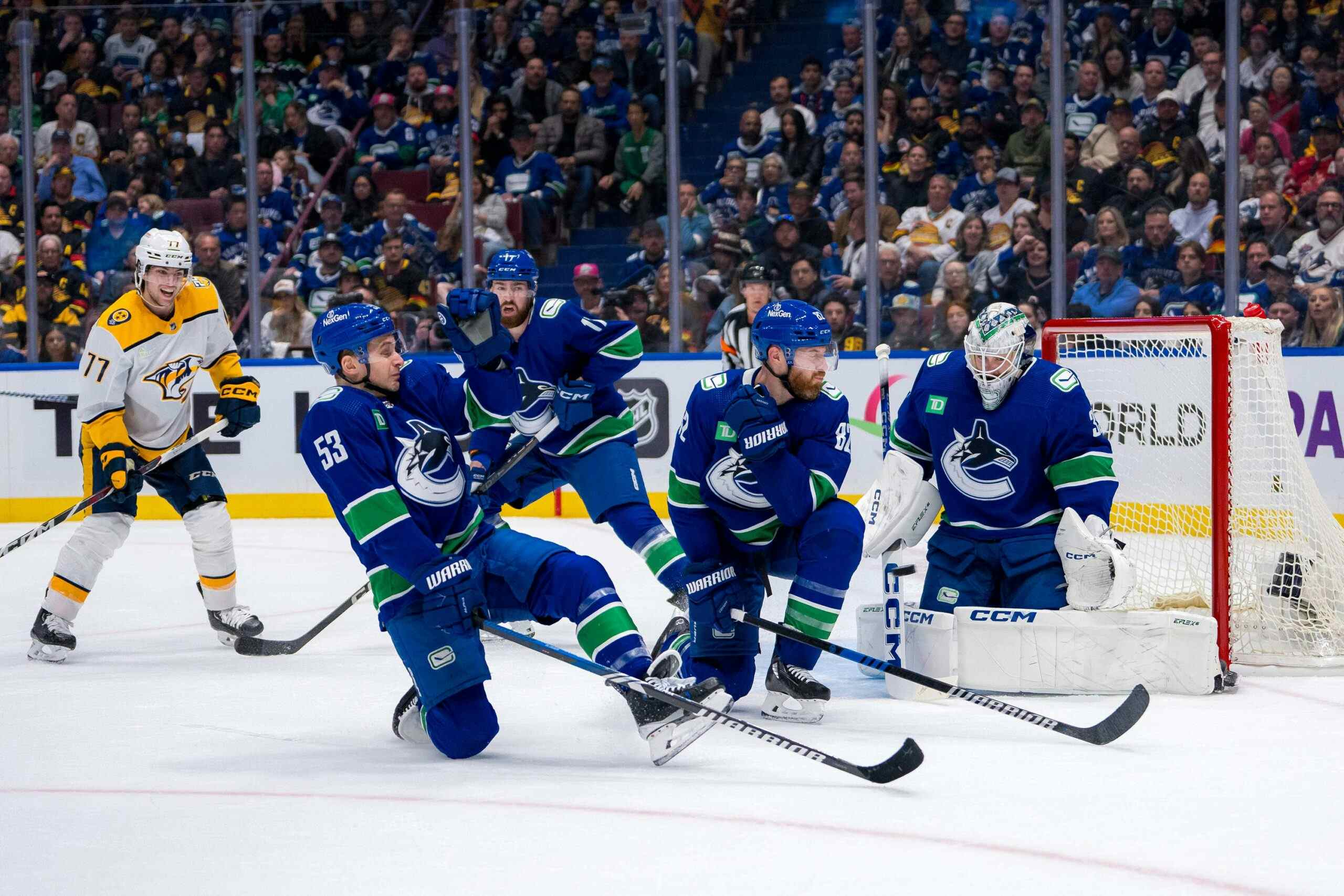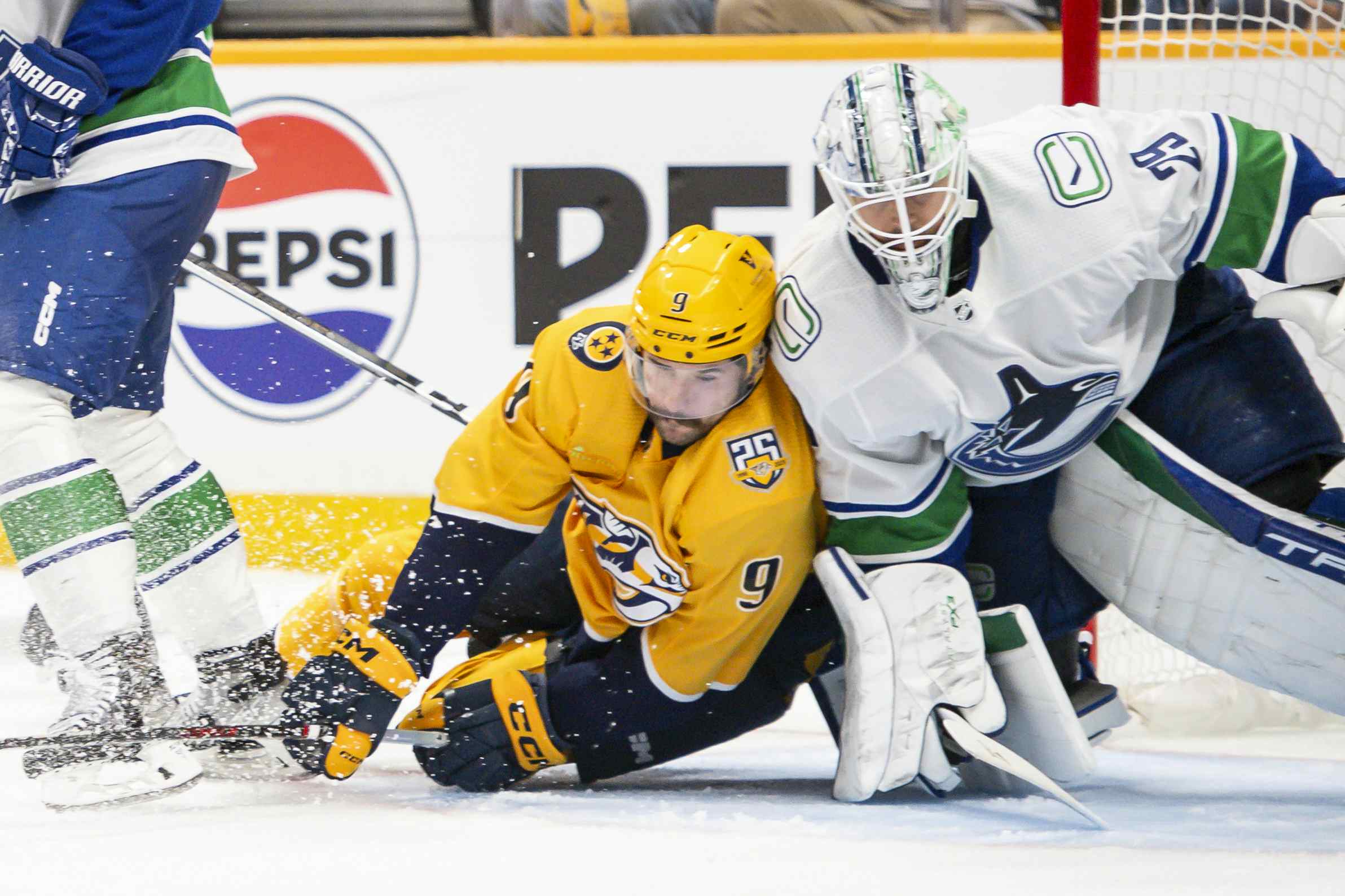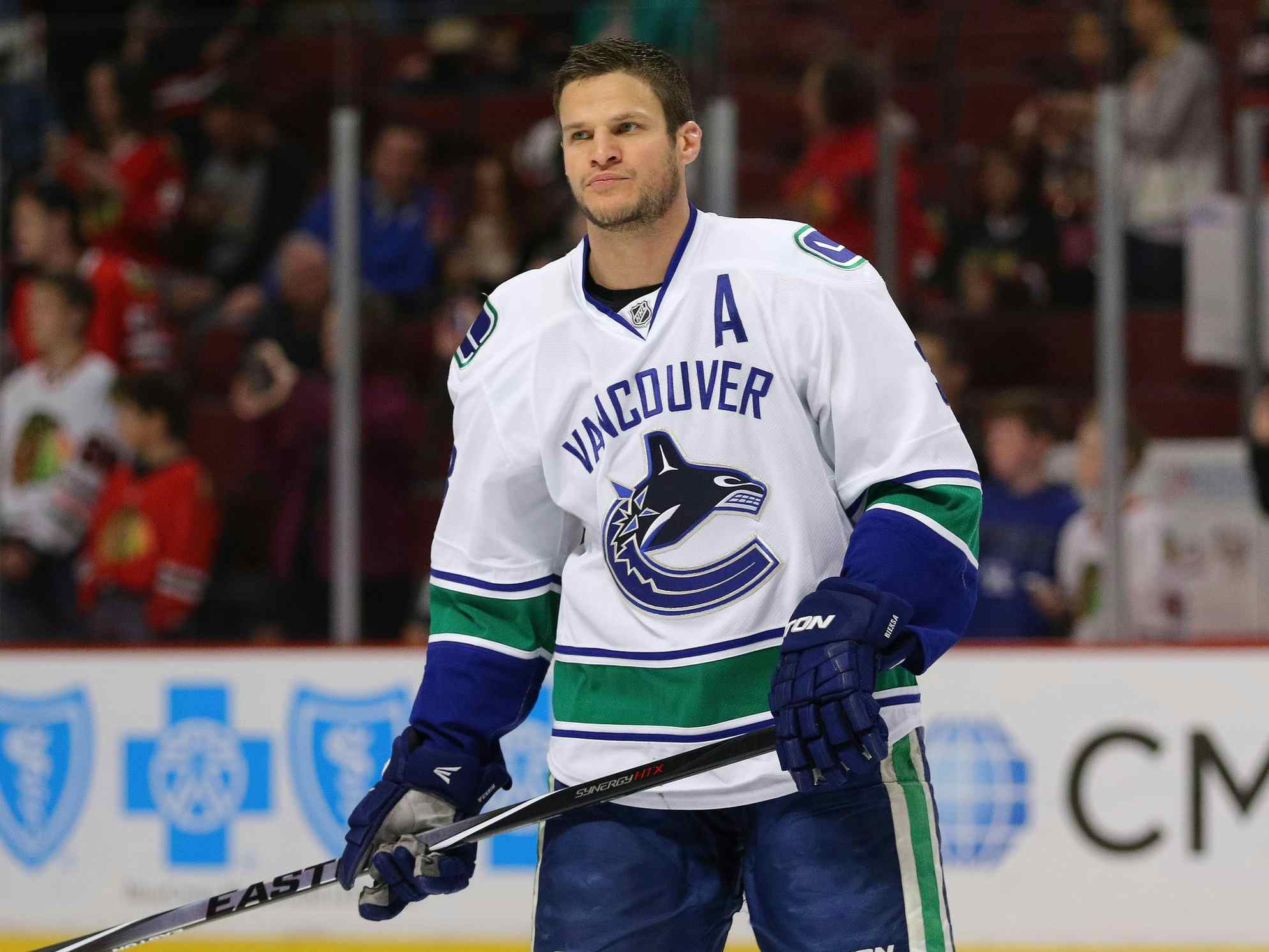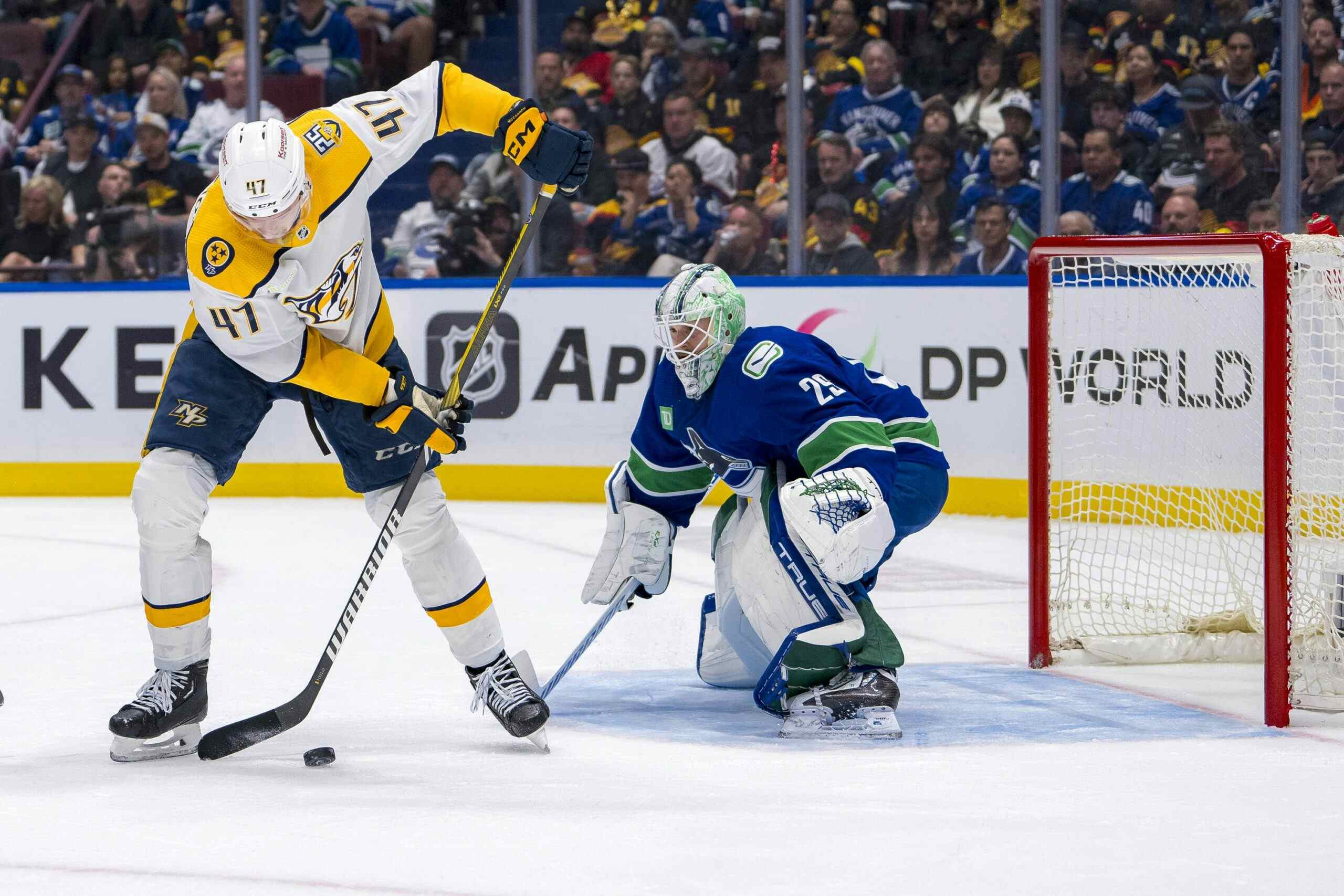Talking Advanced Stats with Elliotte Friedman
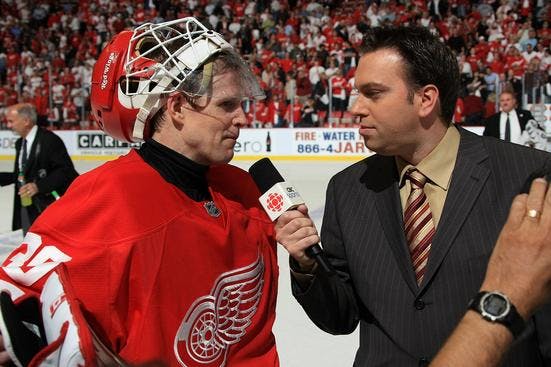
You all know Elliotte Friedman – he’s the Hockey Night in Canada Broadcaster who happens to write the best English language hockey column in the world. His 30 Thoughts go up every Monday (they’re rarely delayed, but when they are, Twitter has a panic-attack). No one captures chatter from the rink quite like Friedman does every Monday. It’s those insightful tidbits that make his 30 Thoughts columns indispensible to NHL fans. When 30 Thoughts returned from its summer hiatus this year, I noticed that Friedman was talking about zone-starts and hockey analytics in a way he previously hadn’t done. I thought perhaps there had been a change in his thinking over the summer in regards to fancy-stats, so I decided to e-mail him and see if he’d talk “moneypuck” with me. Elliotte agreed, and while I had my Wayne Campbell meeting Alice Cooper moment, we set the date of the interview for this past Tuesday. On Tuesday, Elliotte’s wife gave birth to the couples first son – but Elliotte e-mailed me the next day and was still interested in talking about hockey-stats. On behalf of the Nation Network, I’d like to extend my gratitude to Elliotte for his candor and class, and our congratulations to him and his wife on the birth of their son. What follows is the conversation we had:
Thom Drance: Elliotte, one of the main reasons I wanted to speak with you was the appearance of advanced metrics in your regular 30 thoughts column beginning last month, I’m curious, how would you describe your interest in these number?
Elliotte Friedman: I’ve always been interested in statistical analysis and what it can mean. I think that, in this day and age if you’re not open-minded to something – it’s a bad thing. You have to be open minded to all ideas and theories to see if they really make sense, and can help you judge players, teams or whatever. For me it was just a matter of having the time to figure out what they were trying to do, and if they made any sense.
My dad for example is a CFO of a company, but that numerical gene has kind of skipped a generation. So it takes me a little bit longer. This summer while we had a bit of down-time, I was able to look at some things and sort out, you know, this makes sense to me and this doesn’t, and I think this works and that this doesn’t. Some of things Gabe uses I thought made a lot of sense. So that’s basically what has happened, I had a chance to sit down and figure out what I like, what makes sense to me and how I can use it in evaluations and reporting.
TD: I’m curious, was there an article or a piece of evidence that really grabbed you, or has the increase in attention you’ve given to this sort of analysis developed more gradually?
EF: I think it’s a few things. Number one, anyone who read Moneyball probably thought, “what does this mean? Is it only baseball, or does this apply to other sports?” Whether you think the Moneyball ideas are smart or stupid – there’s no doubting they exist. I think if you’re an executive for a team, or even a reporter covering games, you’re probably not doing your job if you don’t at least investigate whether or not they’re useful tools.
Number two, I read Kukla’s Corner a lot, and he has a lot of people on there who use Corsi numbers, and Gabe Desjardins used to do a thing, and initially you would read it and your eyes would glaze over not understanding it. But eventually as you plow into it, you try to figure out “what does this mean, what are these guys talking about?” Number three; I like a challenge so I thought, “okay can I figure out some of this stuff.”
The last thing is, Ron Wilson is a guy who is big into statistical analysis and some of the coaches I’ve dealt with have their own ways of using stats. Like Butch Carter when he was with the Raptors, one of the stats he used to evaluate big-men was something called “rebounds per minute.” So if you have a coach who believes in a certain stat, it gives you a pretty good insight into what kind of player he likes. Whenever the Raptors were looking at a player or I thought there was a player they would look at – I could calculate his rebounds per minute, know what the number was, and determine “this is a Butch Carter type player, or this isn’t a Butch Carter type player.” I think in this day and age, you have to have an understanding of the teams you cover. I used to cover the Raptors a lot, and that was one thing that said to me, “if I know this coach likes this kind of stat, lets look at available players and see where they fit.” And I found it gave me a greater understanding of which type of player he would think was valuable.
TD: What particular hockey metrics are you familiar with and how do you view their relevance and utility?
EF: One thing I believe in a lot is zone-starts. That was a big thing in Vancouver last year – the twins for example would go to Vigneault and say “we’d like to kill penalties” and Vigneault would laugh at them and say “no I want you concentrating totally on offence,” and you’d look at the zone-starts and there they were: starting if the offensive-zone all the time. That’s really interesting, I like to know which players teams are putting on the ice in certain situations. What it also helps you with, is if something different happens in a game. If you’re used to a certain player being used in a certain spot at a certain time, and all of a sudden he’s not there. It shows you something is up. So I find zone-starts to be very helpful and fascinating.
I’m still trying to get more of a grip on quality of competition. You have guys and you’re told they’re great defensive forwards – well are they? While coaches maybe don’t believe in a shut-down line, they believe in putting “best on best”, because they feel if their best guys have the puck, your best guys aren’t going to be able to get it. I would say the zone-starts, and the quality of competition and team stuff is the most interesting to me.
TD: While particular individuals have been tracking things like this for decades, hockey as a whole has been generally slow to embrace analytics. It’s only really been in the last couple of years that these “moneypuck” principles have gained momentum. Why do you think hockey has been slower to embrace this stuff than the other major North American leagues?
EF: You know what, I’m not 100% certain that’s true. I’ll tell you why, James Mirtle did a piece a couple weeks ago in the Globe, and they talked about how only some team’s used them. I think that’s false – and not because of James – but because some teams won’t tell you.
The Vancouver Canucks do a lot of different things – last year I did a piece on the sleep bracelets – and we have barely scratched the surface of what we know about what they do. Fear the Fin did a really interesting interview with Doug Wilson a couple of weeks ago, and he tried to ask about statistical analysis and Wilson shot him down almost at every turn. I think most teams are probably using something, and maybe, though I can’t with any certainty, have been using some statistical analysis for longer than we’ve been aware of. But because some of these teams like to keep these things a secret, we just don’t know the full extent of what they use.
Like Ron Wilson, he apparently has a series of stats he uses that he believes are a great window into a player’s abilities and level, but the one time I asked him if I could find them out, he wouldn’t give them to me.
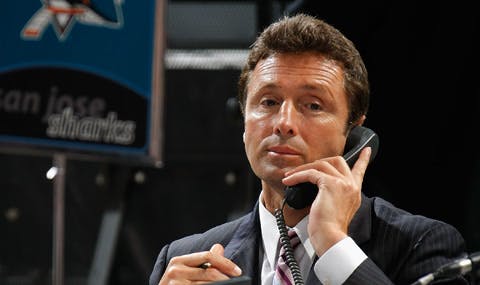
TD: The role of a hard-cap, do you think it has worked as a sort of: “necessity is the mother of invention” factor?
EF: There are a couple of things… Number one, with the salary cap and especially for teams with smaller budgets – every GM is going to make mistakes, it is inevitable. What you have to do is make sure those mistakes hurt you less often, and happen less often, than they might. That’s the key thing – managing mistakes. The easiest way to avoid making mistakes? Ask: “do we know everything we could possibly know about what we’re looking at?” And the more ways you can come up with of quantifying it – the better you are. I really believe that.
It’s like, what’s the most important thing? Preparation. If you don’t have good preparation you can’t succeed. And you can’t fault people for coming up with newer and different ways to prepare. You just can’t afford to make a lot of mistakes whether there’s a cap-system or not – you have a budget and you can’t afford to blow it. You will – but you have to mitigate it, because in some cases it’s impossible to avoid making mistakes, but what you’re looking for is more analysis to help you avoid it.
And the other thing, I think is general competitiveness. How can you think of other ways to beat your opponent? Is there something you can create that they don’t have. Do you look at another organization and say, “they have things we don’t have. How do we change that? How do we get what they have, and how do we improve on what we think they have?”
There are a lot of really smart people in the game who are always looking to be challenged by a new line of thinking, and they’re always looking to say “is there something else we can use to evaluate?” If you’re not evolving, you’re falling behind. That’s the way it is now, you’re constantly looking for new ways to get an edge on your opponent, and so you’re always trying to think of new ways to get that edge.
TD: One of the best things about your thirty thoughts columns are the oftentimes anonymous opinions you get from players, coaches and decision-makers. In your experience, which teams, do you think look the most for these new ideas, or have that competitive edge to the highest degree?
EF: Well Vancouver certainly does – there’s no question about that. San Jose certainly does… I’ll give you another example, I think that one of the reasons Calgary hired John Weisbrod is because he’s one of the guys who believes in that, and they wanted to bring more of it into their organization. I think Boston has certain ways that they do some things – I really got that impression. I don’t know about Toronto’s management staff, if they’re big into it, but their coaching staff certainly is. The Penguins would be for sure, they’re the most open about it. I also think Detroit, probably a little bit more than they let on.
TD: I’d like to share a couple of contrasting quotes with you, and get your take on them. The first is Brian Burke when he appeared on the B.S. Report in May. Bill Simmons asked Burke: “the whole statistical movement… for some reason hasn’t trickled into hockey like it has into some of these other sports… is hockey just a sport that you can’t really measure with statistics.” To which Burke replied, and this may be turtling: “I keep looking at these things… the sport that lends itself best to statistical analysis is baseball. It’s a series of one on one confrontations that are repetitive… Our game is way more spontaneous, we use films for systems and tendencies, but great players aren’t going to do the same thing every time so I don’t think it has the same benefit”
The other quote is from a Dave Feschuk article about Canucks defender Chris Tanev – who could be a poster-boy for the “moneypuck” movement. Feschuk quotes Tanev’s father, and his father chalks up his son’s passing ability, and poise with the puck partly to the time he spent playing roller hockey; but also to the families application of baseball principles on ice. “Baseball teaches you situations — ‘What are you going to do with the ball when the ball comes to you? I introduced that system to Christopher when he was 7 years old — ‘What are you going to do with the puck when the puck comes to you?’”
So which take on hockey – that it’s “largely spontaneous and immeasurable” versus “in subtle ways – it’s in fact repetitive and predictable” strikes you as more convincing?
EF: Here’s the thing with me, and the problem with the whole “statistical movement” versus “non-statistical movement” thing. I don’t know why this has happened, maybe it’s because of Moneyball and people just don’t like Billy Beane. I mean, Billy Beane does sort of come off as an arrogant guy in that book. But I just don’t understand why people have to say it’s one or the other, and I’ll tell you this, some of the worst people when it comes to arguing about that – are some of the people on either side of the debate.
To me they’re probably both right to some degree. Brian Burke is right in that there are a lot of things in hockey that maybe you can’t predict for like you can in baseball. But I also think that Mike Tanev is right in the sense that you have to ask yourself okay, when you’re in this situation, what are you going to do? I mean, why do people practice – it’s because it’s repetition.
I think part of the problem is that people who believe solely in statistical analysis forget an unquantifiable thing called “heart.” I can’t tell you how many times, when I’ve had conversations about this, people who believe in statistics don’t believe in heart, or they don’t believe in pressure. And I hate that, because the reason they don’t believe in it is because it’s foreign to them, and non-quantifiable. And I think that’s terrible, and really dumb thinking. To me I think the right answer is somewhere in the middle.
If I was a general-manager or if I was developing a player, I would be looking for everything. I want to see how a player competes, I want to see how a player battles, I want to see who is a good teammate and who isn’t. If you just hand me a spreadsheet…
Like the whole thing about the way the A’s drafted Jeremy Brown, is so crazy to me. I mean with a spreadsheet, and Paul De Podesta’s laptop – and the guy never makes it, because they don’t know what he’s prepared to handle. To me the A’s drafted the guy and ruined his career in the same moment. In the same moment they destroyed their own asset. I look at that and I say “you know what, that’s outrageous.”
So to me the answer is in the middle – if you have the number one overall draft pick you should be looking at “so who is this guy, what is he all about, what are his strengths and weaknesses,” and then you should have somebody who is in charge of analysis saying, “well this is what we’ve learned about him, and this is what our concerns are, and now we have to figure out how to address that.” If you’re not using everything, you’re not being good at your job, that’s what I believe.
TD: Lots of stat geeks looked at this years Selke nominations and were shocked. Toews and Kesler, for example, were not even the “elite defensive centers” on their own teams. Do you think we’ll reach a point where the PHWA is prioritizing zone-starts and events against, so that hockey can have a Frans Nielsen, “Felix Hernandez” type Selke winner?
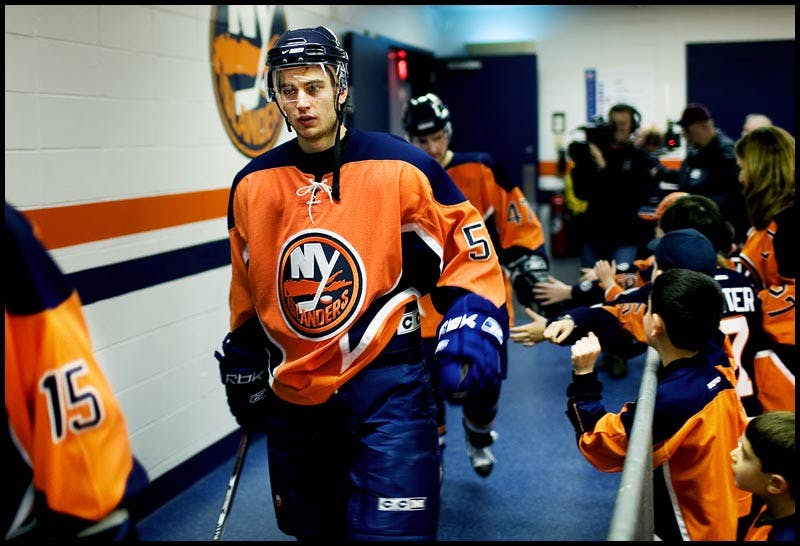
EF: Yeah I think absolutely it will get there. I tell you, when I was voting last year (and I think I voted for Kesler) I remember I was being lobbied for Frans Nielsen. I had a few people that said to me well look at Frans Nielsen. I did. It’s not like I didn’t consider him. But one of the reasons I voted for Kesler over Malhotra myself, is that I think being a defensive player isn’t only about being a defensive player. I think if you’re a two-way player, and an offensive threat – to me you’re automatically a better defensive player.
Everybody knows what a great defensive player Pavel Datsyuk is – but why is that? It’s not only because he back-checks, it’s because he’s always got the frigging puck. You can’t take it off him, no matter where you are on the ice. So if he’s playing against your best players, and you can’t get the puck, he nullifies your guy. I think a guy like Kesler is not in Datsyuk’s class – but I think about it that way. If this is a guy who is a 40 goal threat, and is a threat to score more than Malhotra is, does that not make him automatically, if they’re both really good defensive players, doesn’t that make Kesler better?
To get back to Nielsen – last year, there were a few people, and Islanders fans saying, “look at him.” I think you’re silly if you don’t listen, and people were constructing some reasonably good arguments, so I watched a few more games in depth, and he looks like he could be a really good player.
I think sometimes people take it as an insult “oh my guy didn’t win – these reporters are morons and they don’t know anything.” I understand sometimes that people look at us reporters and say “they’re not into statistical analysis” and I would probably agree to that to some extent. When you’re a man or woman who covers a team everyday – you’re probably going more by feel than you would be stats, and I don’t think there’s anything wrong with that. I do find that I read more people who use some of these statistical arguments, and make sense with them. And I think there are some reporters who are more open-minded. But it’s hard to be when you’re following a team around every day, and you watch 80, or 100, or however many games it is, and you’ve got somebody telling you “no, you’re an idiot! You should be watching Frans Nielsen, instead of somebody else” – I understand how people would say, “well I’m not listening to that jerk.”
TD: I definitely think an issue with stat-heads to some extent is our lack of political savvy… Sometimes we fail to calibrate our arguments in a way so as to not make the person hearing them defensive, thanks Elliotte.
EF: No worries Thomas.
** Thanks again to Elliotte for his time and exceptional answers.
Recent articles from Thomas Drance

